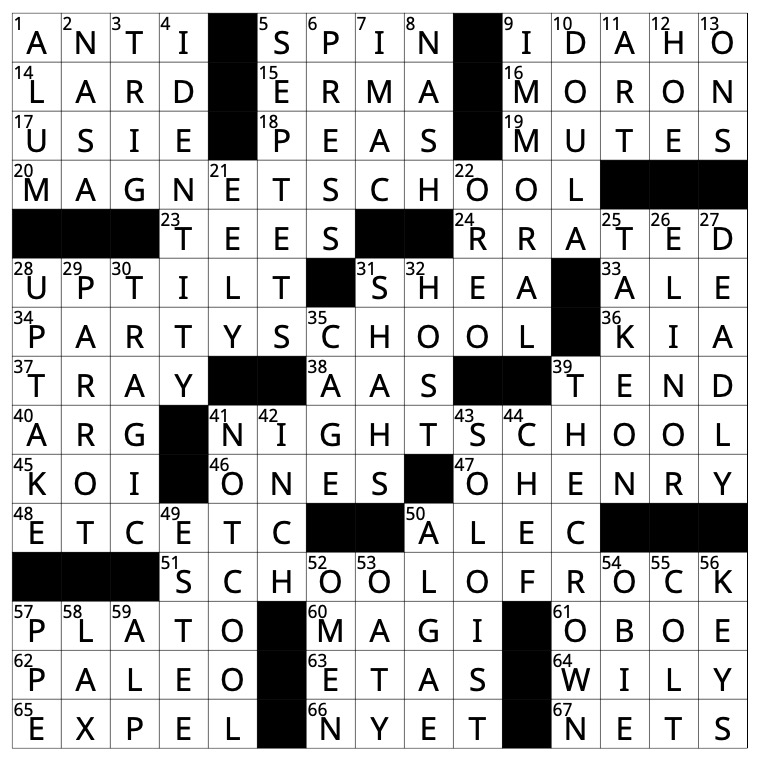Seated at the piano—sometimes in her house at 2 a.m., sometimes in a practice room in bottom floor Chalmers during fourth period—Dora Palmer ’15 always makes sure her subway token is in her pocket before she starts to sing, play and write.
“I’m a little bit OCD with it,” Palmer said. “It’s from Manhattan, from years ago, I believe in little charms and things like that.”
Meanwhile, creative writing teacher Ryan Wilson likes to have “The Complete I Ching” by his side while he writes.
“It’s an ancient book of chance operations,” Wilson said. “It’s called ‘The Book of Changes’ in Chinese. It describes where you are, and you get to interpret it and decide how you want to move forward.”
No matter their style, or how young they were when they started, or even what lucky charms they use, they share a love for writing, and not just for English essays.
Palmer and Molly Cinnamon ’14 caught the writing bug from their families.
“My parents are sitcom writers, so I’ve grown up surrounded by the creative process,” Cinnamon said. “I was so amazed that they started with nothing and constructed something tangible and real—and funny, of course.”
“I have a lot of writers in my family,” Palmer said. “My mom is an English teacher, and my little sister, who is an amazing singer, started writing, and I guess I just started trying to copy her.”
Alex Haney ’14 started writing as a result of his experiences with acting.
“I was exposed to so many things with acting that it just kind of felt natural to me,” Haney said.
Though Cinnamon wrote her first story in second grade, she now focuses on script writing and blogging.
She started H-W Voices, a blogging site for students and faculty.
“The most exciting thing is to see the similarities and differences between each blogger after reading a few of their posts,” Cinnamon said. “Each blogger develops and expresses his or her own voice.”
Wilson is a novelist and a creative writing teacher. His debut novel, “Spiral Bound Brother,” is coming out next month and is available for presale on Amazon.com.
“To me, the idea of writing and working at a school is something I can see myself doing forever—teaching in some way, working with young people in some way, while creating whatever I’m creating,” Wilson said.
Many writers have one thing in common: they work best at night.
“I usually write blogs at night, and scripts and video concepts whenever inspiration strikes,” Cinnamon said.
“I write from around 4 to 5:30 in the morning. It’s because I am a father of two young children and that’s the only time I can get everyone to leave me alone,” Wilson said.
“I like writing at night, like really late at night,” Haney said.
“I usually write late at night when I can’t get to sleep,” Kathi Bolton-Ford ’13 said. “Everyone says your demons come out at around 3 a.m., and writing is my way to combat that negativity,”
Bolton-Ford said she has always been interested in writing, but did not start writing seriously until she joined Writegirl in eighth grade.
Bolton-Ford described Writegirl as “a non-profit organization whose goal is to encourage young female writers to find their voice through mentorships with women writers.”
“I love writing fiction,” Bolton-Ford said. “It’s the only acceptable way of telling lies.”
Other writers have different approaches to their craft.
“Sometimes I’ll be talking to someone and an idea will pop into my head, and I must write it down,” Haney said. “So I have this document on my computer, now it’s like seven or so pages long, and it just has ideas written down.”
“I try to write for at least an hour every day, whether it’s at school or at home, if I don’t have any ideas I still try to do that,” Palmer said.
For Bolton-Ford, writing is more than just a hobby; it’s an absolute necessity.
“I was able to get myself out of an unhealthy situation at home through my writing mentor,” Bolton-Ford said. “Writing has saved my life. For years, I carried secrets that I couldn’t speak to anyone about, but I could tell my story through the lives of my characters. It helped me to have an outlet.”
“To me it’s kind of similar to yoga and breathing, it’s like writing and living, it’s like breath, it just is,” Wilson said. “That’s my mode of living.”






























